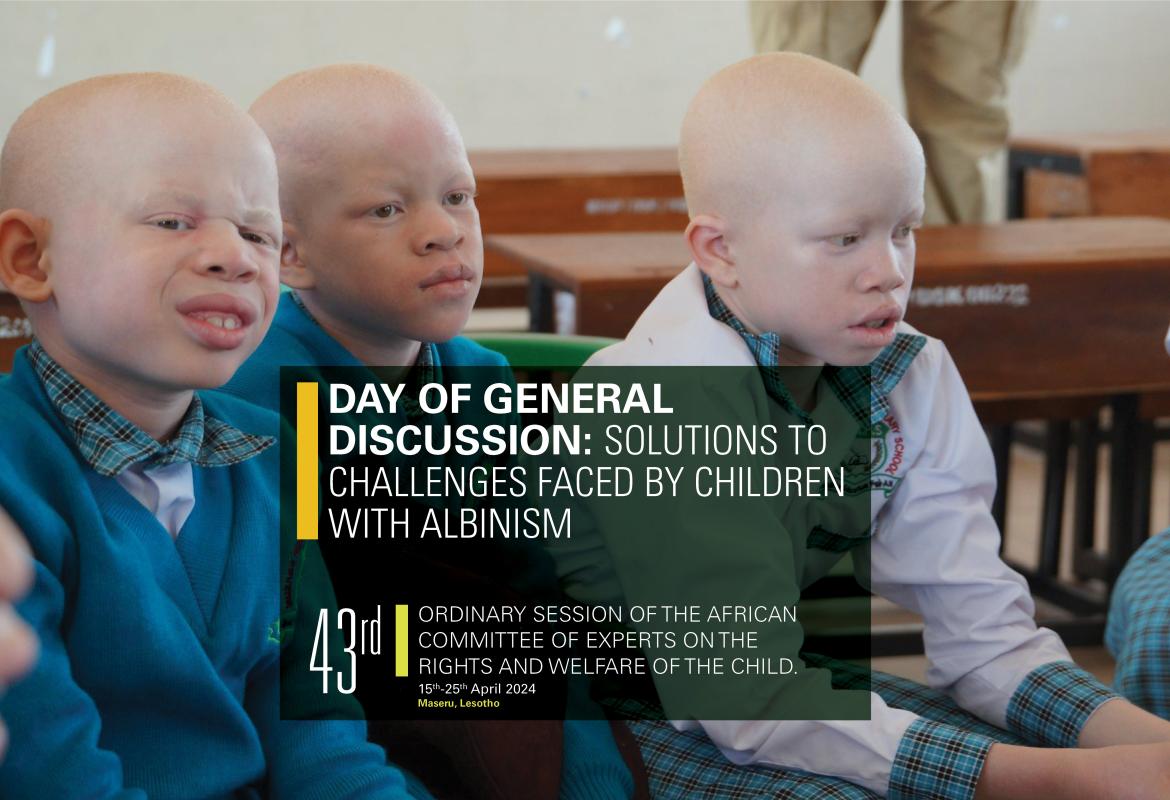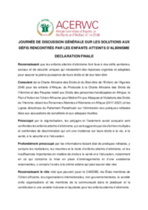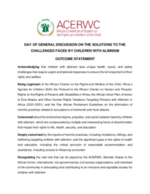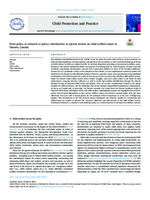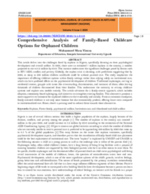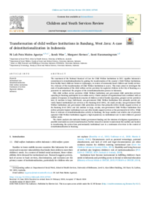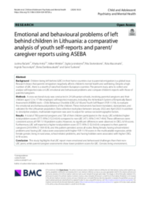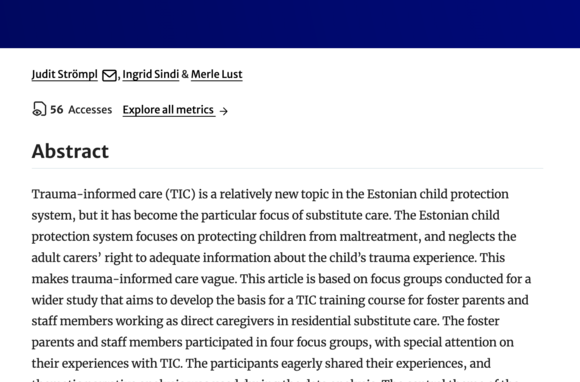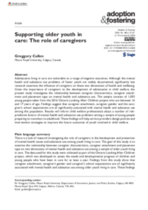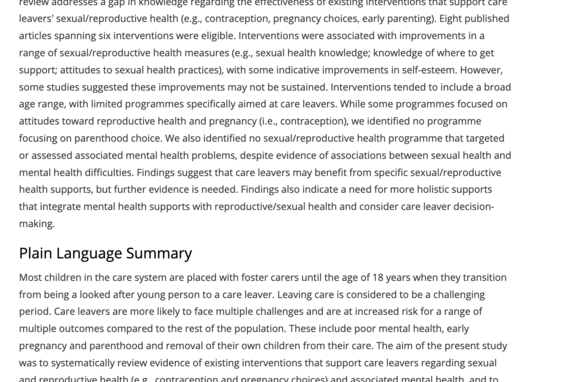Outcome Statement of the Day of General Discussion on Solutions to Challenges Faced by Children With Albinism
This ACERWC outcome statement of the DGD on Solutions to Challenges Facing Children With Albinism captures considerations on adopting an outcome document to emphasize the key points raised during discussions and the proposed actionable measures to ensure the full enjoyment of the rights of children with albinism.
Why a Day of General Discussion on Solutions to Challenges Faced by Children with Albinism?
Muluka Anne Mitti-Drummond, UN Independent Expert on the Enjoyment of Rights of Persons living with Albinism highlights how the conversation on the enjoyment of rights of children with albinism will advance the advocacy on this topic.
From Policy to Research to Policy: Introduction to Special Section on Child Welfare Issues In Ontario, Canada
In this article, the authors present considerations related to the global mandate for child protection and the challenges that persist amongst marginalized communities. Subsequently, they focus on Canada and, in particular, the Ontario example: the trends from the Ontario Incidence Study of Reported Child Abuse and Neglect (OIS). This child welfare epidemiological project has highlighted the need for greater intersectional adjustments to best protect children, where the iterative research-policy cycle has most effectively been seen with a formal system for the inclusion of lived experience, as in the case of Indigenous peoples.
Comprehensive Analysis of Family-Based Childcare Options for Orphaned Children
This article delves into the challenges faced by orphans in Nigeria, specifically focusing on their psychological development and overall welfare. The article advocates for a family-centric approach, which includes adoption, community-based upbringing, and initiatives to strengthen existing families.
Transformation of Child Welfare Institutions In Bandung, West Java: A Case of Deinstitutionalization In Indonesia
This study aimed to investigate the state of transformation of the child welfare service providers for neglected children in the City of Bandung as a parameter to understand the progress of the deinstitutionalization process in Indonesia.
Emotional and Behavioural Problems of Left Behind Children In Lithuania: A Comparative Analysis of Youth Self-Reports and Parent/Caregiver Reports Using ASEBA
This cross-sectional study was conducted in 24 Lithuanian schools and involved parents/caregivers and their children aged 12 to 17. The study aimed to collect and analyse self-reported data on left behind children's emotional and behavioural problems and compare children’s reports with those of parents/caregivers.
Is Trauma-Informed Care Possible Without Information? – Experience of Trauma Awareness among Estonian Foster Parents and Residential Caregivers
This article is based on focus groups conducted for a wider study that aims to develop the basis for a trauma-informed care training course for foster parents and staff members working as direct caregivers in residential substitute care in Estonia.
Supporting Older Youth in Care: The Role of Caregivers
The goal of this study is to examine the relationship between caregiver characteristics, caregiver attachment and placement type on two dimensions of mental health and substance use among a sample of older youth living in care in Ontario, Canada.
Interventions to Support Reproductive and Mental Health Among Care Leavers: A Systematic Review
This systematic review addresses a gap in knowledge regarding the effectiveness of existing interventions that support care leavers’ sexual/reproductive health (e.g., contraception, pregnancy choices, early parenting). Eight published articles spanning six interventions were eligible.

